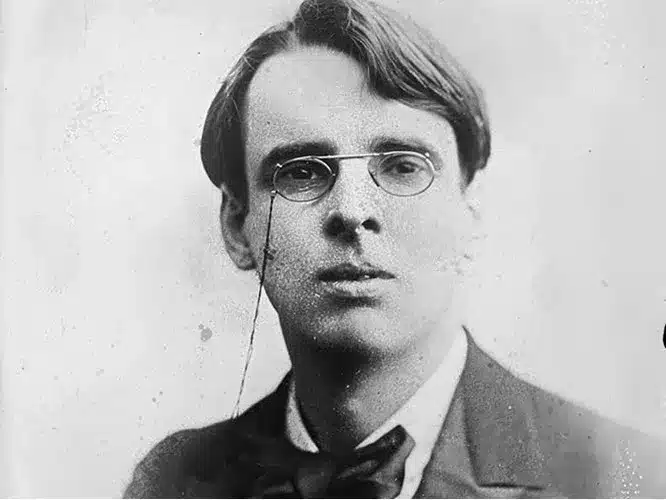Exploring the Mystic Muse: The Enduring Legacy of William Butler Yeats

William Butler Yeats (13 June 1865 – 28 January 1939) was an Irish poet, dramatist, writer, and one of the greatest English-language poets of the 20th century. He received the 1923 Nobel Prize for Literature.
Life and Career
He was born on 13 June 1865 in Dublin, Ireland. He got his early education at home and then went to Godolphin School in 1877. Despite being an average student, he developed a deep interest in literature. He went back to school at Dublin’s Erasmus Smith High School after spending a few years in England. He started writing seriously during this time. He went to the Metropolitan School of Art, from 1884 to 1886.
Later, he moved to London where he met Oscar Wilde, Lionel Johnson, and George Bernard Shaw. He also met Maud Gonne, an ardent nationalist, and pro-Irish independence supporter. His works were greatly inspired by her. He joined the Golden Dawn Hermetic Order in 1890. Yeats was also a co-founder of the Rhymers’ Club. After that, he published two anthologies of Rhymers’ work, one in 1892 and one in 1894.
In addition to literature, he wrote a few plays. Together with Lady Gregory, Edward Marty, and George Moore, he founded the Irish Literary Theatre to perform Irish and Celtic plays. He wrote dramas like ‘Countess Cathleen’ (1892), ‘The Land of Heart’s Desire (1894), and ‘The King’s Threshold (1904). In 1904, he helped found the Abbey Theatre, also known as the National Theatre of Ireland. Among the reasons for its popularity was its association with well-known playwrights like Yeats and John Millington Synge.
He’s also interested in mysticism, spiritualism, occultism, and astrology. In 1911, he joined “The Ghost Club”, a paranormal research organization, and stayed interested in it for the rest of his life. Yates wrote the preface to Rabindranath Tagore’s English translation of Gitanjali in 1913.
He was appointed Senator for the Irish Free State in 1922, where he served for six years. Among his best works are ‘The Wild Swans at Coole’ (1919), ‘Michael Robartes and the Dancer’ (1921), ‘The Tower’ (1928), ‘The Winding Stair and Other Poems’ (1933), and ‘Last Poems and Plays’ (1940).
He died on 28 January 1939, in Menton, France.
Award and Legacy
In 1923, he won the Nobel Prize in Literature “for his always-inspired poetry that reflects the spirit of a nation”.
Observer Voice is the one stop site for National, International news, Sports, Editor’s Choice, Art/culture contents, Quotes and much more. We also cover historical contents. Historical contents includes World History, Indian History, and what happened today. The website also covers Entertainment across the India and World.

